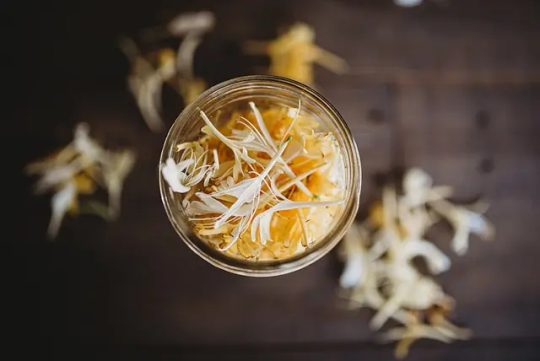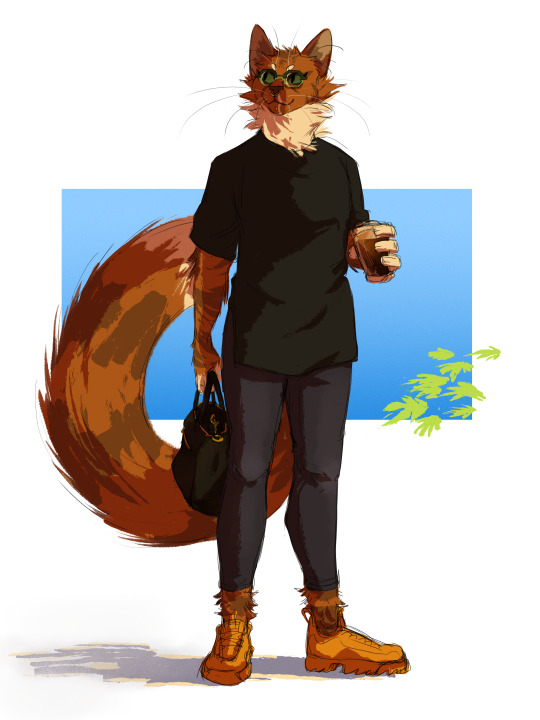#varietes
Explore tagged Tumblr posts
Text

My contribution to the Kingdom Hearts community becoming Organization XIII members when Twitter rebranded to X in the last week.
There is also a BONUS PANEL in a reblog to this post.
#varietivity’s work#digital art#artwork#illustration#art#kh xemnas#kingdom hearts#sora#twitter#x#organization xiii#kh kairi#riku#kairi#roxas#xion#kh xehanort#Terra#Aqua#ventus#axel#saix#comics#funny stuff#kh fanart#kh#kh2#kh3
1K notes
·
View notes
Note
can you do pngs of the One Direction members individually? 🫶🫶
i love this blog so much, i saved a few pngs to add to the backgrounds of my blogs so they look all decorated!





I'm gonna be so real with you I don't know who is in one direction.. I hope these are right
#png#transparent#request#people#Google said 3 and then there's that's one pic with 5 and i found 4???#there's an infinite varietion of direction members is what I've learned from this
23 notes
·
View notes
Text









Francois Sagat / Theatre des Variétés / Paris
©TextoDallas Nails
#francois sagat#paris#theatre des varietes#portrait photography#texto dallas nails#nails#texto dallas
42 notes
·
View notes
Text

#morgan.pdf#im digging hubbardston nonesuch but im curious#polls.pdf#these are all antique apple varietals <3
8 notes
·
View notes
Text
Some goods news for women
How Ivuna women farmers are transforming their lives through seed production
In Ivuna Village, Tanzania, a determined group of women leveraged Vikoba loans, mentorship, and improved sorghum seeds to transform their livelihoods, boost household incomes, and inspire others in their community
By��Florian Ndyamukama February 4, 2025
“Five of us borrowed $100 from our Vikoba group and invested it in seed production. Not only did we repay the loan with interest, but we also made a profit,” says Skola Sichalwe, a member of an extraordinary group of women who are transforming their community in Ivuna Village, Momba District. Vikoba groups, grassroots savings and credit associations, operate as informal microfinance systems in rural communities, empowering members with access to small loans and promoting financial independence. These groups often provide a lifeline for women seeking financial stability and growth in rural areas. What began as small savings groups has blossomed into a powerful movement of women breaking barriers and creating a legacy of resilience, innovation, and success. These women—once skeptical about venturing into seed production—are now thriving entrepreneurs, producing quality sorghum seeds and inspiring others in their community to follow their lead. Their journey began with a chance encounter with Miss Zainab Hussein, a passionate seed producer and a youth champion. Her vision and mentorship planted the first seeds of change. “I used to think farming was just about survival,” says Pauline Martin. “But Zainab showed us that with the right knowledge and tools, farming can be a business; a way to change our lives.”
A leap of faith in seed production
Before venturing into the world of seed production, these women were members of Vikoba groups, pooling their savings to lend and borrow money. While this system was helpful for meeting immediate financial needs, it offered little opportunity for growth or long-term investment. Everything changed when Zainab Hussein, an experienced seed producer and youth champion, began attending their meetings. Zainab introduced the group to the potential of improved seeds and the opportunities in seed production. She explained how adopting high-quality sorghum seeds could significantly increase yields and profits, far exceeding the returns from what traditional grain farming could offer. Her visits became a game changer, sparking curiosity and inspiring action among the women. “Zainab’s dedication inspired us,” says Skola Sichalwe. “She didn’t just train us. She believed in us.” As a trainer, mentor, and role model, Zainab played a central role in their transformation. She guided the women through the complexities of seed production, teaching them essential planting techniques, helping them understand TOSCI regulations, and offering practical solutions to challenges they encountered along the way. “She showed us how seed production could not only improve yields but also become a profitable business,” recalls Pauline Martin.

Zainab Hussein, a passionate seed producer and mentor whose guidance and leadership inspired the women to venture into successful seed production and transform their lives. (Photo: CBCC)
Inspired by Zainab’s success, the women saw an opportunity to turn their savings into a sustainable investment. This journey was further supported by the establishment of Youth and Women Quality Centers (YWQCs) under the Center for Behavior Change Communication (CBCC) and the Accelerated Varietal Improvement and Seed Systems in Africa (AVISA) project through CIMMYT. The AVISA project, led by CIMMYT, piloted the YWQC model to address key challenges faced by rural farmers, including limited access to quality seeds, market linkages, and knowledge on improved farming practices. These community-led centers serve as hubs that enhance last-mile seed access by working with seed companies and local producers, ensuring a consistent supply of quality seed. They also facilitate market linkages by connecting farmers with aggregators and off-takers, improving market access and profitability. Additionally, YWQCs provide capacity-building initiatives, equipping youth and women with training in farming practices, local seed production, and business skills. The model further promotes collective action by encouraging farmers to form associations, strengthening their bargaining power and collective marketing efforts. These centers became hubs of opportunity, providing essential infrastructure and resources such as access to certified seeds, extensive training, and advanced farming technologies such as the multi-crop thresher through a cost-sharing arrangement. This technology not only improved efficiency but also ensured the quality of processed seeds, increasing its market value. The project also facilitated crucial linkages between the women and certified seed producers, ensuring they had access to high-quality inputs for their production. In some cases, the project even helped them find markets for their seeds, closing the loop and creating a sustainable business model. And so, they began the journey of seed production, transforming not only their own lives but also their community.

The women’s group plants sorghum using proper spacing techniques, a transformative practice essential for certified seed production, which they adopted after training by CBCC and mentorship from Zainab. (Photo: CBCC)
With loans from their Vikoba groups, they purchased quality seeds and accessed the tools, training, and market linkages provided by the YWQCs. “For years, we saved money but didn’t know what to invest in,” says Halima Kajela. “Seed production gave us a clear opportunity to grow.”
Challenges: A Test of Determination
The journey wasn’t without hurdles. Rodents feasted on the carefully spaced sorghum seeds, a new planting method the women had to adopt for certification. “Broadcasting seeds was easier, but seed production required precise planting and spacing,” Halima explains. “This made it harder to protect the seeds from pests and animals.” Excessive rain washed away seedlings, requiring several rounds of replanting. Cattle from neighboring farms often invaded their fields, causing further damage. Adopting good agronomic practices such as proper spacing, timely weeding, and regular inspections was initially difficult for these women, who were unaccustomed to the disciplined approach required in seed production. Despite these setbacks, the women persevered. With Zainab’s guidance and support from the YWQCs, they implemented solutions like using seed planters which saved time and effort during planting, knapsack sprayers helped combat pests and diseases, and multi-crop threshers simplified the post-harvest process. All these tools saved time and improved efficiency.
Triumph in the fields
And their hard work paid off. In their very first season, the women achieved remarkable success, producing three tons of TARISOR 2, an improved sorghum variety. This achievement not only set them apart from other first-time producers in the district, but also marked the beginning of a transformative journey.

Before the arrival of multi-crop thresher, the women relied on traditional methods to thresh sorghum. Their dedication laid the foundation for their transformation into successful seed producers. (Photo: CBCC)
The impact of their efforts went far beyond the impressive harvest. Ten women became officially registered seed producers with the Tanzania Official Seed Certification Institute (TOSCI), gaining recognition and credibility in the seed production business. Two members received specialized training in seed and fertilizer dealership, equipping them to expand their services and outreach to the community. Four women ventured into distributing essential agricultural inputs, such as maize seeds and hermetic bags, further diversifying their income streams and supporting local farmers. Recognizing the need for efficient post-harvest processing, the group collectively contributed to the purchase of a multi-crop thresher. This crucial investment significantly streamlined their operations, reducing labor and ensuring higher-quality processed seeds. Their efforts quickly translated into financial rewards. Within a short time, they sold one ton of their high-quality seeds, earning over $700. As word of their success spread, demand for their seeds continued to grow, promising even greater opportunities in the seasons ahead.
A ripple effect of change
Their success has had a profound effect on their community. The women’s achievements have earned them respect, and their influence is inspiring others to follow in their footsteps. “Before this, I didn’t believe in seed production,” says Pauline. “But after seeing Zainab’s success and what we achieved, even my husband now supports me fully in this venture.” Their impact extends beyond their fields. Other Vikoba groups have invited them to share their knowledge on seed production, and 10 new women have expressed interest in joining the initiative. By making improved sorghum varieties more accessible, they’ve also helped increase production and reduce food insecurity in their village.
Looking ahead: Planting seeds for the future
Inspired by their success, the women have ambitious plans. With a clear vision for the future, they are determined to expand their seed production enterprise and bring its benefits to a wider community. One of their primary goals is to extend their production to neighboring wards, such as Mkomba. To make their knowledge and improved seed varieties more accessible, they plan to establish demonstration plots closer to the village center. These plots will serve as practical learning sites, allowing more farmers to experience the advantages of using certified seeds and adopting best practices. “The demand for quality seeds is growing,” says Halima Kajela, one of the group members. “We’re committed to meeting that demand and helping more farmers improve their yields.” They are also exploring ways to diversify their operations. They aim to invest in distributing other agricultural inputs and post-harvest services such as threshing, to support farmers in the community and generate additional income. For these women, seed production isn’t just a business—it’s a symbol of empowerment.
#tanzania#Women in agriculture#Youth and Women Quality Centers (YWQCs)#Accelerated Varietal Improvement and Seed Systems in Africa (AVISA)#Sorghum#Tanzania Official Seed Certification Institute (TOSCI)
9 notes
·
View notes
Text
WHY!!! ARE EVERYONE PAFL OCS MUTANTS!!!!!!!!!!!!!!!!!!!!!!!!!!!!!!!!!!!!!!! can i pretty prettttyyyyyyyyyy please have a thirty year old man living paycheck to paycheck trying to feed his kids
#pafl#dont get me wrong mutants are sSOSOSOSOSO cool#but DUDEEE!!!!!!.#no actally i will love a pafl mutant if it is creative#but guys guys the facility is running out of room to keep all your kids in#can i get a facility worker oc. thank yo#no actually as a pafl nerd i need some more variet y in your guyses ocs..#or ATLEAST OKKK ATLEAST tell me about thier lore. plesaseee pretty please im the oc lore holderok. troll emoji.
38 notes
·
View notes
Text

Grechetto
“Image of Grachetto di Todi grapes.” - via Wikimedia Commons
#grapes#grechetto#wikipedia#wikipedia pictures#wikimedia commons#fruit#nature#food#Grechetto bianco#white grape#grape varietals#Vitis vinifera#tracheophytes#angiosperms#eudicots#dicots#rosids#vitales#vitaceae#grapevine#botany#flora
9 notes
·
View notes
Note
HELLO AGAIN I'm here to say that If your art was any type of food it would be a really, really, REALLY fancy 5 course meal with perfectly cooked food and dessert, BASICALLY WHAT IM SAYING IS THAT YOUR ART IS SO GOOD ITS WORTH EATING :3333 (I love looking at your art everyday 🤤)
AWWW thank you so much !! that's so lovely of you to say (❁´◡`❁) !! i always look forward gettin to draw stuff, so i'm happy to hear my stuff's as enjoyable for others as it is for me to make !!!!!
#fave#snap chats#everyones been so nice .... youre all so very lovely and supportive i cant stress this enough .. it really keeps a guy motivated 🤧🤧🤧#that time to draw for myself seems so finite this month its makin me antsy BUT I WILL TRY REGARDLESS !!! for us all#novembers an evil month .. and dont even get me STARTED on december .. but if theres a will theres a way !!!! i always find a way#i think ima doodle ooonnee more thing in response to an ask then i wanna see how far i can sketch a personal goofy thing tonight#god speakin of varietized courses ive just been postin mostly goofy stuff havent i- and the next thing i have in mind Is Goofy#what can i say im a goofy guy ... but i do wanna tap into my Slightly angstier stuff. just a lil. for a chance in flavor#regardless i hope you'll come to enjoy both !!!!! and whatever else i manage to draw this upcoming week !!!#it probably. wont be much if anything I Will Be Busy but next weekend for sure :]]
9 notes
·
View notes
Text
fingers crossed that this year there's some fantasy cc (bb/cas/anything) put out for simblreen... I'm subsisting on crumbs here!!
#I always need more fantasy cc but there's not many people who make it consistently. 😢#morrigan.txt#delete later#I'm attempting to do my part although it's not as fantasy as it could be. But at least maybe the recolors of the wings count??#I know most people do like spooky-themed stuff for simblreen but I'm kinda bored of spooky stuff. At least your classic supernatural variet#of spooky. Either give me really fucked-up horror or give me something FUN that isn't spooky.
8 notes
·
View notes
Text
"don't add unnecessary sugar and fat to your food!"
okay but I'm pretty sure drizzling extra honey on my bagel and remembering the nice day I spent with my friend when we stopped at this farmer's market is doing more for my health than dieting would
#just me#it's pumpkin varietal honey and it tastes really nice :)#I actually don't believe in diets#I just think you should add healthy things that make you happy to your diet and exercise regimen#instead of taking things away#life's too short to give up cheese and honey tbh
23 notes
·
View notes
Text


Honeysuckle Lemonade
#dimples and blonde blog#pinterest#honeysuckle#lemonade#honeysuckle lemonade#honeysuckle syrup#works great with lilac lavender rose...#always double check with varietals and sources!!#no need to mithridate#warm weather cool drinks#simply sweet libations#honeysuckle flowers are antiviral anti-inflammatory and antioxidants!#photo credits to the blogger/creator/link
9 notes
·
View notes
Text
tonight i am haunted by ears






what even are those things. one of them is always crooked, that's all i know.
#at least they're usually sort of the same shape#theyve gotten more confusing since his colors have changed#varietal ponytail adventures also lmao his hair is baffling and i do Not understand it#ive seen so many people give this hair such character and im still like homestuckconfusionanimation.gif#consistency idk her#don't get me started on his stupid fucking nose!!!!!!!#.... why are the last ones so long
4 notes
·
View notes
Text

(WIP) Got Nomad Sculpt and currently practicing some 3D sculpting with a familiar antagonist from Kingdom Hearts
#I will also tackle Ansem SOD + Appr. Xehanort eventually#varietivity’s work#digital art#artwork#disney#xemnas#xehanort#kingdom hearts#square enix#aqua#Terra#Ventus#organization xiii#sora#riku#kairi#roxas#xion#Axel#WIP#kh#kh2#kh3#kh 358/2 days#3d#current wip#3d artwork#kh fanart
22 notes
·
View notes
Text


we had one (1) week of warm weather and it changed on a dime right when i got extremely tired of it but it was so nice to see bright sunshine again after a very unusual winter 🌞
#my art#beecat (that's me)#furry art#a rare not-fance not-lolita beecat appears#wore short sleeves for the first time since getting a new tattoo(s) while out and about and a barista recognized one of them!#wild situation all around bc i was completely zoned out and cradling a just-purchased baguette like a baby staring up at the menu#so i thought they meant the baguette. not my forearm#and i have new glasses now too! they are great! i feel so good in them!#anyways i drew way too many things in a drab palette all in a row and desperately needed something golden-hour-y to cleanse the palate#palette in this case though i guess innit#lots of yards w/ acer palmatum in my neighborhood and the green varietals look so lovely w/ fresh leaves in spring
39 notes
·
View notes
Text
youtube
Content warning: this is very much the Devil of folklore, and not an impish little red guy. These stories are not suitable for children.
These tales come from The Complete and Original Norwegian Folktales of Asbjørnsen and Moe, in new translations by Simon Roy Hughes and Juergen Hubert, read by Rory of Varietal Lit.
#the devil on christmas eve#christmas eve#german folklore#norse folklore#christmas#the devil#audio#short stories#videos#folklore#christmas folklore#christmas eve folklore#dark christmas#winter folklore#Juergen Hubert#Simon Roy Hughes#Varietal Lit#Youtube#the woemother#The Complete and Original Norwegian Folktales of Asbjørnsen and Moe#dark winter
8 notes
·
View notes
Text
shopping for perfume-making supplies is always daunting, if for no other reason than some of the oils I want so badly are just so out of the price range I'm willing to pay.
curse my stupid allergies.
#listen I have bought quite a few 'sandalwood alternatives'#including different varietals of sandalwood#none of them are right#it is what it is and in blends the substitutes can work okay#but it's just not the same#don't get me started on the prices of floral oils#I would murder for a decently priced lily of the valley absolute
4 notes
·
View notes